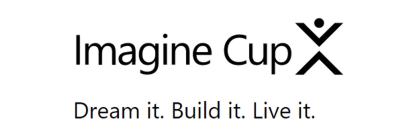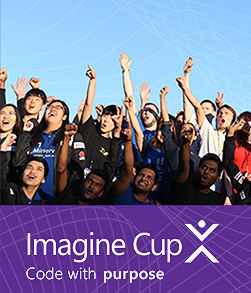| Imagine Cup 2021 - Who Will Be World Champions? |
| Written by Lucy Black | |||
| Friday, 02 April 2021 | |||
|
For 2021 the Imagine Cup became an all-digital challenge and is now entering it's final phase with four teams selected to compete in the World Championship for a top prize of USD $75,000 and mentorship with Microsoft CEO, Satya Nadella. The Imagine Cup is Microsoft's long-running competition for student teams to devise apps that tackle real world problems and global issues. For 2021 it became an all-digital challenge with four competition categories: Earth, Education, Health, and Lifestyle. From the tens of thousands of students from 163 countries who registered for the contest, 39 teams advanced to the World Finals to showcase their original tech innovations which, using Artificial Intelligence, IoT, Augmented Reality, gamification, and other innovative use of Azure, are intended to make a difference. The World Finals consisted of two rounds. During Round 1 of the World Finals, each team gave a 3-minute project pitch followed by a demo presented to expert judges, answering questions and discussing their ideas in depth. Twelve teams, three in each category, then moved on the Round 2 in which they pitched their solutions live to showcase their ideas and technology to each of a panel of six judges. The four winning teams, one in each category, listed below, were each awarded $10,000 plus Azure credits. The other finalist teams received $2,500 each plus Azure credits. To know more about the teams and their projects use the links below. Earth category: Students creating projects in the this category could build a solution encompassing issues like climate change, agriculture, or green tech. Six teams were selected for the World Finals and winners going forward to the World Chapionship are: Team ProTag, New Zealand The runner up projects were: Team Intelligent Hives, Poland Virtual Radiologist, Nepal Education category: Focussed on innovating to change the way students across the globe learn, encompasses empowering every student on the planet to achieve more, and encouraging lifelong learning, employability, and equal opportunity through tech. Eight teams were selected for the World Finals and winners going forward to the World Chapionship are: Team Hand-On Labs, United States The runner up projects were: Nyansapo AI, United States Tandemly, United States Healthcare category focuses on transforming and reimagining healthcare with technology. This includes enabling personalized care, empowering care teams, and improving operational outcomes. Accessibility and inclusion are also a large emphasis, focused on building products to enrich the lives of people with disabilities, and designing and building inclusive technology. Thirteen teams were selected for the World Finals and winners going forward to the World Chapionship are: Team REWEBA, Kenya The runner up projects were: Cepha, United States Intelli-Sense, India Lifestyle category focuses on projects that shape how we game, play, and live, encompassing tech that creates opportunities for recreation, building community, and shaping our passions, hobbies, and work. Twelve teams were selected for the World Finals and winners going forward to the World Championship are: Team Threeotech, Thailand The runner up projects were: Assurance Team, United States DataMasker, China As in previous years the scope and professionalism of these student projects is of remarkable quality and makes participation in the Imagine Cup thoroughly worthwhile. Getting to the World Finals is an achievement to be proud of and the four teams that now progress to the World Championship are making outstanding contributions to making the world a better place through software. In recent years ImagineCup winners and finalists have gone on to form startups to make their projects into viable, marketable, products and no doubt some of these teams will follow this route. More InformationMeet the 2021 Imagine Cup Top 4 teams! Related ArticlesImagine Cup Junior 2021 Underway Imagine Cup 2018 Highlights Microsoft's Latest Technologies Microsoft Student Contests Emphasize Azure To be informed about new articles on I Programmer, sign up for our weekly newsletter, subscribe to the RSS feed and follow us on Twitter, Facebook or Linkedin.
Comments
or email your comment to: comments@i-programmer.info
|
|||
| Last Updated ( Friday, 02 April 2021 ) |



